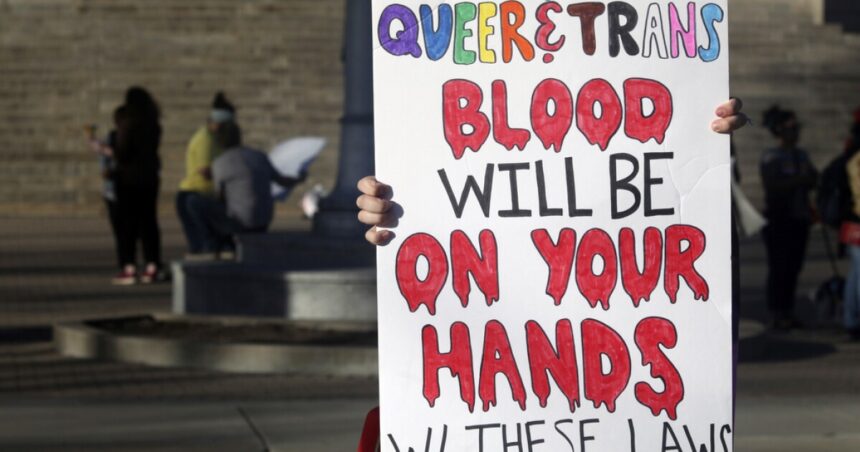The Biden administration’s attempt to broaden protections for LGBTQ+ students faced another obstacle Monday when a federal judge in Kentucky temporarily blocked the new Title IX rule in six additional states.
U.S. District Judge Danny C. Reeves described the regulation as “arbitrary in the truest sense of the word” as he granted a preliminary injunction preventing its implementation in Kentucky, Indiana, Ohio, Tennessee, Virginia, and West Virginia. His decision followed a previous ruling that temporarily blocked the rule in Idaho, Louisiana, Mississippi, and Montana.
More than 20 Republican-led states’ attorneys general have filed seven legal challenges against President Joe Biden’s new policy. Republicans contend that the policy is an attempt to allow transgender girls to participate in girls’ athletic teams, although the Biden administration has stated that the rule does not pertain to athletics.
A request for a preliminary injunction filed by Republican attorneys general from Arkansas, Iowa, Missouri, Nebraska, North Dakota, and South Dakota is still pending. The Education Department has urged the judge to reject the request.
Scheduled to go into effect in August, the rule expands Title IX civil rights protections to LGBTQ+ students, updates the definition of sexual harassment at educational institutions, and introduces safeguards for victims. Title IX, enacted in 1972, prohibits sex discrimination in education.
The ruling in Kentucky on Monday was welcomed by the state’s Republican attorney general, Russell Coleman, who argued that the regulation would undermine equal opportunities for women.
The Education Department expressed its commitment to advocating for every student while reviewing the decision.
In his ruling, Reeves emphasized the original intent of Title IX to maintain equality between men and women in education and criticized the Education Department for attempting to challenge established law with the new policy.
The judge highlighted the potential invasion of bodily privacy and First Amendment concerns posed by the rule, which he argued could force educators to use pronouns conflicting with their religious or moral beliefs.
Reeves’ ruling, the latest setback for the new protections, was met with resistance from opponents who believe it contradicts the essence of Title IX.
The Fairness Campaign, a Kentucky-based LGBTQ+ advocacy group, condemned the ruling for disregarding the transgender community and affecting vulnerable transgender children.
The Family Foundation, a socially conservative public policy organization in Kentucky, commended the judge for halting what they viewed as a radical redefinition of “sex” under Title IX.
Despite backlash and legal challenges, the Biden administration remains committed to implementing protections for LGBTQ+ students under the new Title IX rule.





